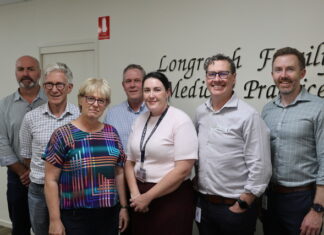Amendments to the Local Government Infrastructure Plans (LGIP) could go ahead as the council gains approval from the State Government.
The new amendments come as data shows population and employment growth are expected to drop as the mining boom comes to a close leading into 2031.
There is an expected drop of 35 per cent in population and employment before 2031.
This will mean the Central Highlands Regional Council (CHRC) will look to rework stormwater and other trunk infrastructure into the near future.
A CHRC spokesperson said they would continue to maintain the current stormwater infrastructure while they undertook network planning.
The former LGIP was adopted in 2017, and according to the state legislature, LGIPs are to be amended every three to five years.
The LGIP amendment will include changes to mapping density in different catchment areas and change where priorities will be set for these services.
Property owners are encouraged to assess the impacts on their property, by looking at mapping and the Schedule of Works (SOW) component of the LGIP 2.
Ratepayers will be charged differently, based on the level of services their area will receive (i.e. full service in an urban location versus partial service in a rural location).
The new LGIP with the amendment will start on April 21, 2021.
The amendment was stalled after the council, as a part of the proposal, was required to put an ad in a local paper.
They decided to put the ad in CQ News, which at the time, July 2020, had gone online only.
The State Government eventually reneged on this decision and approved the amendment on February 24.
“Whilst neither the superseded nor the current version of the Minister’s Guidelines and Rules specify that the newspaper in which the notice is advertised must be a hardcopy print version, the accepted practice had been to place it in a hardcopy print edition,” a council spokesperson said.
“Prior to this, no other council had successfully challenged this practice.”
State approves local infrastructure plans

Michael R Williams
Digital Edition
Subscribe
Get an all ACCESS PASS to the News and your Digital Edition with an online subscription
Rural Health Commissioner’s first-hand visit to Longreach
The National Rural Health Commissioner has visited Longreach to see first-hand how the Central West Hospital and Health Service’s (CWHHS) successful medical practice model...







